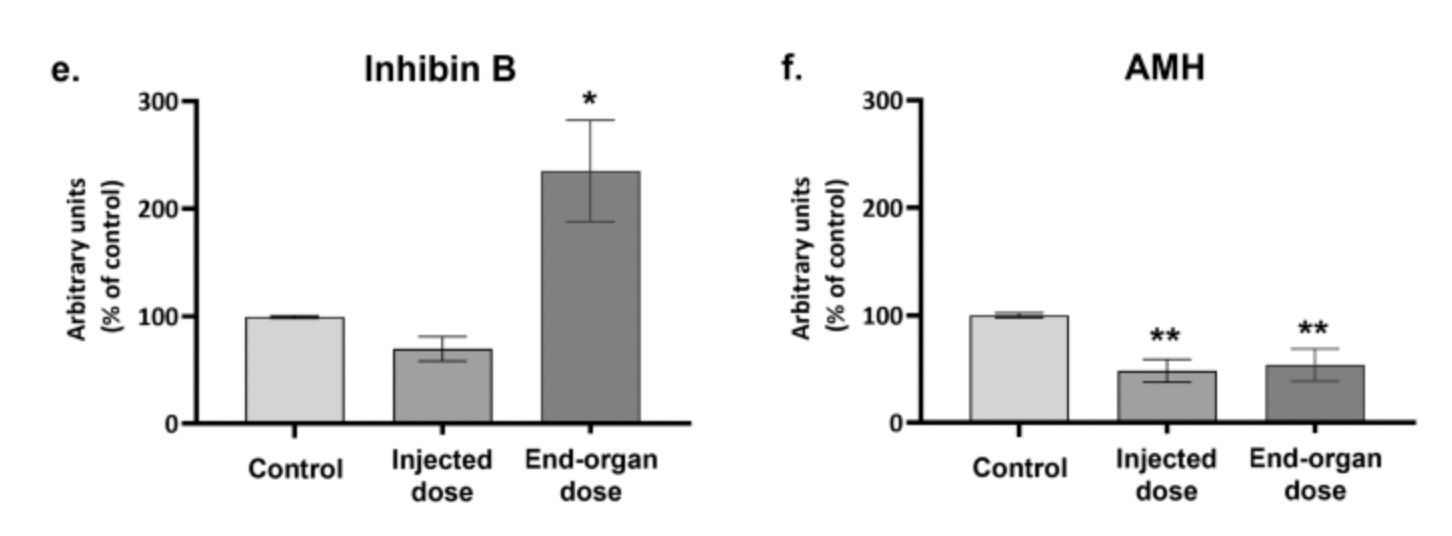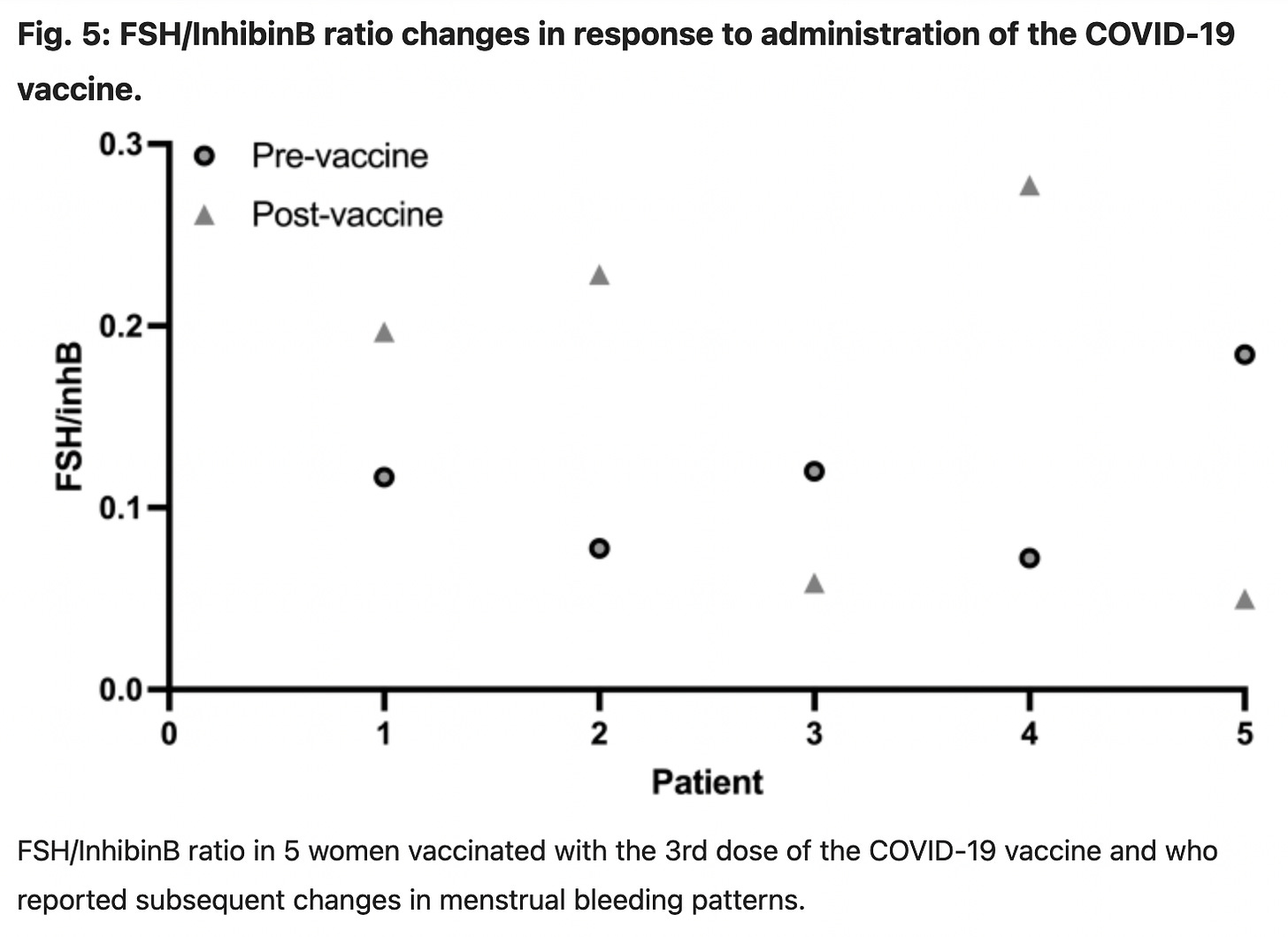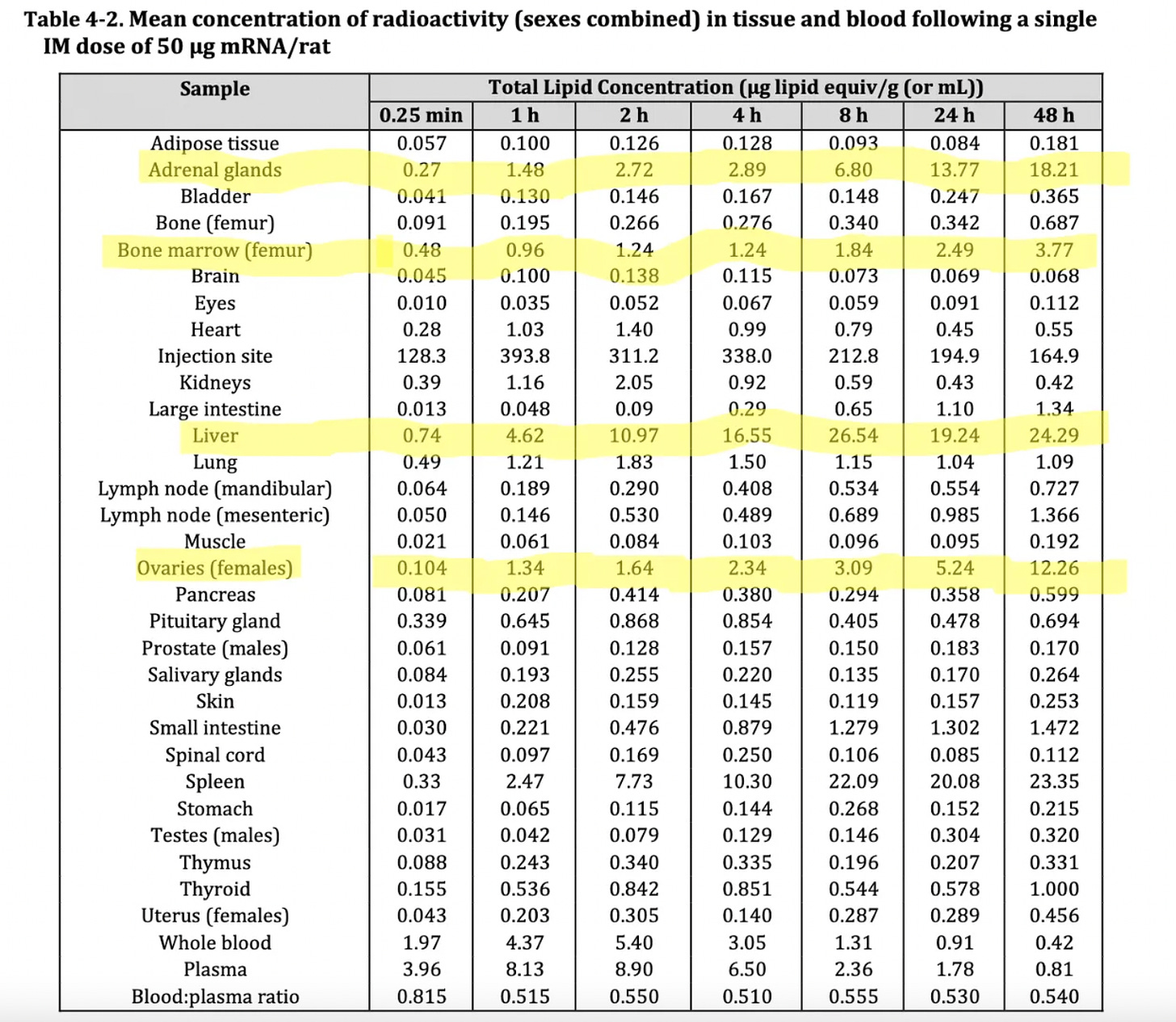BREAKING: Israeli Study Explains How Pfizer-BioNTech mRNA Shot Causes Menstrual Irregularities

If you value the work I’m doing, please consider becoming a paid subscriber or upgrade to one and help support independent investigative journalism!
On June 26th, a study entitled, ‘The direct effect of SARS-CoV-2 virus vaccination on human ovarian granulosa cells explains menstrual irregularities’ was published in Nature by Bar-Joseph et al., a group of researchers from Tel Aviv University, Israel.
This ground-breaking mechanistic paper comes after numerous observational studies have reported on menstrual irregularities (such as prolonged and heavy bleeding) experienced by women, following the Covid mRNA shots. The following studies cited in the Israeli paper, confirm the link.
Male, V. Menstruation and covid-19 vaccination. BMJ
Lee, K. M. N. et al. Investigating trends in those who experience menstrual bleeding changes after SARS-CoV-2 vaccination. Science Advances
Wong, K. K. et al. Menstrual irregularities and vaginal bleeding after COVID-19 vaccination reported to v-safe active surveillance, USA in December 2020–January 2022: an observational cohort study. The Lancet
Male, V. COVID-19 vaccination and menstruation. Science
Nazir, M. et al. Menstrual abnormalities after COVID-19 vaccines: a systematic review. Vacunas
Rodríguez Quejada, L., Toro Wills, M. F., Martínez-Ávila, M. C. & Patiño-Aldana, A. F. Menstrual cycle disturbances after COVID-19 vaccination. Women’s Health
Baena-García, L. et al. Premenstrual and menstrual changes reported after COVID-19 vaccination: the EVA project. Women’s Health
Alvergne, A., Woon, E. Von & Male, V. Effect of COVID-19 vaccination on the timing and flow of menstrual periods in two cohorts. Frontiers
Wang, S. et al. A prospective study of the association between SARS-CoV-2 infection and COVID-19 vaccination with changes in usual menstrual cycle characteristics. American Journal of Obstetrics & Gynecology
In late 2023, I previously reported on the landmark Norwegian study, which confirmed a concerning association of postmenopausal women experiencing unexpected menstrual bleeding following mRNA vaccination.
It is noteworthy that Bar-Joseph et al. pointed out how irregular periods are crucial beyond fertility, affecting cardiovascular health and chronic disease risks, including premature mortality. The researchers stated:
Irregular periods are important well beyond fertility and the discomfort they impose; they are associated with the risk of cardiovascular morbidity, chronic diseases, and premature mortality.
The objective of the study was to investigate the direct effects of the Pfizer Covid mRNA vaccine on granulosa cells (GCs) and their influence on menstrual patterns.
GCs are somatic cells found within the ovarian follicles, which play an essential role in female fertility and hormonal regulation.
In reference to their study’s design and findings, the researchers explained how the Pfizer Covid vaccine did not effect the GC’s vitality.
We exposed in-vitro human primary GCs (hpGCs), obtained from women undergoing IVF treatments, to two concentrations of the vaccine (“injected dose” or “end-organ dose”; see “Methods”) for 24 or 48 h. To overcome biases resulting from differences in women’ characteristics and IVF protocols (detailed in Supplementary Table 1), we pooled hpGCs from more than one woman in each of our experiments.
First, we examined whether the vaccine inflicts a toxic effect on the vitality of the cells. Using an MTT test (Fig. 1), we showed that the cells’ vitality is not compromised by the vaccine, regardless of dose concentration or time of exposure.
However, when they went on to investigate the level of mRNA transcripts of genes associated with GCs activity, alarmingly, after 48 hours of exposure, the researchers found that “the end-organ dose caused a profound increase (MORE THAN 200%) in InhibinB mRNA level. AMH level was downregulated at both doses.”
Source: The direct effect of SARS-CoV-2 virus vaccination on human ovarian granulosa cells explains menstrual irregularities
Their startling findings revealed how human primary GCs exposed in vitro to the Pfizer vaccine (BNT162b2) showed altered mRNA transcripts: InhibinB was significantly upregulated, AMH was downregulated.
To accompany their in-vitro investigation, the researchers interviewed women attending the Sourasky Medical Centre, around 4 months after receiving their third dose of the BNT162b2 COVID-19 vaccine. Of the 124 women included in their final analysis:
Forty percent of women with regular menstruations and 53% of women with irregular menstruations reported various changes in their cycle length and bleeding patterns following administration of the 3rd vaccine dose.
The researchers then went on to investigate:
Whether the detected increase in inhibinB, following a direct vaccine exposure, can also be tracked in vaccinated women and point to its role in menstrual irregularities. To that end, we analyzed blood samples from five women before and ~1 month after 3rd dose vaccination.
All women reported changes in their menstrual bleeding pattern post the vaccine. Blood was collected without recording the day of the menstrual cycle. Since FSH/InhibinB present a relatively stable ratio, independent of the day of cycle 29, and as each woman has her own FSH/InhibinB ratio that is steady, not only throughout the cycle but in following cycles 30, 31, we followed that ratio.
We found that for all women tested, the FSH/InhibinB ratio was changed 2–3 folds post vaccination.
This change reinforces our hypothesis that vaccination caused an immediate elevation in InhibinB expression, that led to changes in the menstrual cycles’ length and bleeding, as well as to an altered FSH/InhibinB ratio a month later.
This mechanistic study is of particular importance, as the results revealed that post-vaccination, blood samples showed a 2–3 fold change in FSH/InhibinB ratio, indicating significant impact on the hypothalamic-pituitary-ovarian axis and menstrual cycle.
In their discussion, the researchers stated:
We concluded that the findings gathered in this work were not a result of impairment to the cells vitality but rather related to changes in their activity.
They went on to importantly note:
As the anti-COVID-19 vaccine is the first commercially available mRNA-based vaccine, and since there is no available vehicle to serve as “control”, we cannot discard the possibility that the changes we characterized in the hpGCs were induced by the vaccine envelope and not specifically by COVID-19 mRNA sequence. Today, when there are more mRNA-based vaccines in the pipeline this issue is highly relevant.
The vaccine envelope that the researchers refer to, are the toxic lipid nanoparticles, which encase the modified mRNA sequence found in the Covid mRNA shots.
Two out of the four compounds comprising the lipid nanoparticles (LNPs) have never been used before in a medicinal product: ALC-0315and ALC-0519, both licensed from Acuitas Therapeutics. Acuitas’ LNPs are components of the Pfizer/BioNTech and Moderna mRNA Covid-19 vaccines. Furthermore, scientific literature shows these LNPs can be highly toxic and inflammatory. In addition, these tiny particles can travel all around the body, including to the ovaries.
It’s worth pointing out that all key drug regulators knew early on, before the vaccines were green-lit and rolled out, that the lipid nanoparticles accumulate in the ovaries. This alarming fact was exposed in the non-clinical (animal) studies.
It took until October 2022, for the European Medicines Agency (EMA) to add “heavy menstrual bleeding” as a side effect for Comirnaty (Pfizer-BioNTech mRNA vaccine) and Spikevax (Moderna’s mRNA vaccine).
Source: Meeting highlights from the EMA’s Pharmacovigilance Risk Assessment Committee (PRAC) 24–27 October 2022
However, the EMA was made aware of this adverse effect, well over a year before, from early 2021, as it was referenced in Pfizer/BioNTech’s first ever Periodic Safety Update Report (PSUR) submitted to the regulator, which I analysed for Children’s Health Defense, Europe.
In February 2023, I was invited by Neil Oliver on his GB News show to discuss whether the Covid-19 vaccines are affecting women’s menstrual cycles. The interview can be watched below.
(Shortly afterwards, I posted the GB Newsinterview on my YouTube channel- within the first day, it was removed because it “violated community guidelines.” Mysteriously, almost a year and half later, it resurfaced on my channel. However, it is still heavily suppressed, which is evident by its minimal views.)
Turning back to the Bar-Joseph et al. study and their poignant statement:
Today, when there are more mRNA-based vaccines in the pipeline this issue is highly relevant.
The US government invested $31.9 billion in the experimental mRNA vaccine platform (including research and procurement) with Pfizer, BioNTech and Moderna accumulating more than $100bn in global revenues from sales, since the launch of their Covid-19 shots.
The researchers note “there are more mRNA- based vaccines in the pipeline”- this is indeed the reality. Moderna’s combined flu and covidmRNA vaccine, recently passed advance trial. Pfizer and BioNTech are also testing a similar two-in-one mRNA vaccine against flu and Covid.
In July 2023, the UK government and BioNTech signed a deal to provide up to 10,000 UK patients with precision cancer (mRNA-based) vaccines by 2030.
What is disturbing is that cancer-inducing genetic sequences have been found in both the Moderna and Pfizer/BioNTech mRNA shots, along with unprecedented levels of DNA contamination.
Furthermore, the mRNA shots were found to be “error-prone” (prone to ribosomal frameshifting) by the researchers of a landmark study, Mulroney et al. Their disturbing results showed the unintended production of “off-target” proteins, other than the spike protein, with an ‘unintended’ immune response in the human body.
It can be said that all of these concerning safety aspects associated with the mRNA Covid shots point to excess deaths observed around the world- therefore “this issue is highly relevant.”
The results of the recent bombshell study on excess mortality, showed 3 million excess deaths reported in 47 countries from 2020-2022, is a testament to this fact. The researchers importantly noted that the Covid vaccines may have helped fuel the rise in excess deaths.
What is also highly relevant is how this study now faces retraction for daring to question the safety of the mRNA vaccines.
If you value the work I’m doing, please consider becoming a paid subscriber or upgrade to one and help support independent investigative journalism!







No comments:
Post a Comment